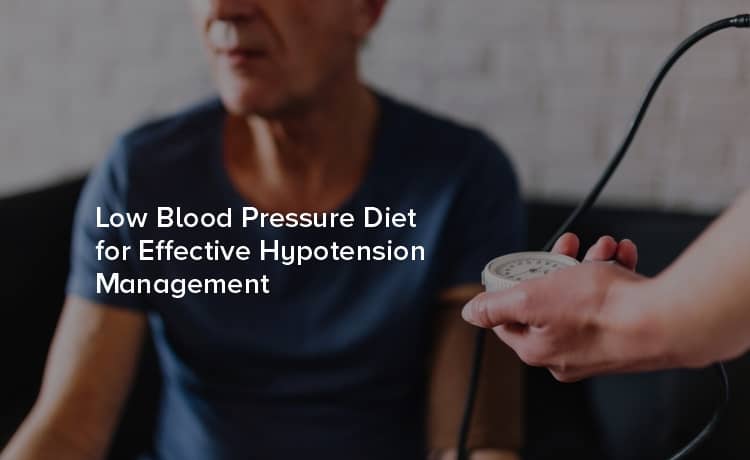
Low Blood Pressure Diet: Effective Management of Hypotension
1. Understanding Hypotension
Hypotension, or low blood pressure, is when blood pressure falls below the standard expected range for an individual in each environment. Managing low blood pressure (hypotension) can be challenging for many. It often requires lifestyle adjustments, a careful diet balance, and sometimes medical interventions. Symptoms can include dizziness, fainting, and an overall feeling of weakness. While some attribute these symptoms to simply having a "bad day," for those with chronic hypotension, it is a constant hurdle that requires attention.
2. The Role of Diet in Managing Hypotension
A balanced diet plays an essential role in maintaining healthy blood pressure levels. Certain nutrients play a significant part in cardiovascular health and, thus, in regulating blood pressure. Let's explore how diet can be optimized to support those with low blood pressure.
3. Foods to Include in a Low Blood Pressure Diet
People with hypotension may benefit from a diet that includes the following:
- High-fiber foods: Consuming fiber-rich foods like fruits, vegetables, and legumes can aid in improving heart health. They help manage weight and improve overall circulation, which is beneficial for blood pressure maintenance.
- Magnesium-rich foods: Including nuts, seeds, whole grains, and leafy green vegetables in your diet can boost your body's magnesium levels, which assists in blood pressure regulation.
- Healthy fats: Incorporating a moderate amount of healthy fats in olive oil, nuts, and fish can promote a healthy heart and, thus, better blood pressure levels.
- Whole grains: Whole grains provide fiber and other nutrients to maintain healthy blood pressure.
4. Meal Planning Tips for Hypotension Patients
Here's how you can adjust your meal planning routine:
- Small, frequent meals: Eating frequent, small meals can help prevent a drop in blood pressure that can occur after eating.
- Proper hydration: Drinking sufficient fluids throughout the day is crucial for preventing dehydration, which can cause low blood pressure.
- Balanced macronutrients: Ensure each meal has a good balance of proteins, carbs, and fats to maintain energy levels and overall health.
5. Lifestyle Modifications for Managing Hypotension
In addition to diet, lifestyle plays a critical role:
- Regular exercise: Regular physical activity can improve heart health and blood flow.
- Stress management: Learning to manage stress through techniques like meditation, deep breathing, or yoga can prevent spikes or drops in blood pressure.
- Adequate sleep: Ensuring a healthy sleep schedule is essential for cardiovascular health.
6. Conclusion
In conclusion, hypotension can be effectively managed with a conscientious diet and lifestyle changes. Incorporating various nutrient-rich foods and adjusting meal frequency can go a long way. Alongside dietary modifications, regular exercise, stress reduction, and sufficient sleep are potent tools in your arsenal against low blood pressure.
Call us now at 040 67 19 19 19 to schedule your appointment, or conveniently book online by filling out the form on our Citizens Specialty Hospital. Take the first step towards improving your health today!
